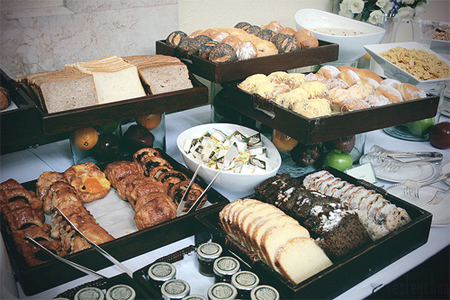
Disclaimer: I’m not a doctor or a nutritionist or a health professional of any kind. Don’t take anything in this post as official advice: I’m just documenting an experiment I’ve been trying.
Is breakfast really the most important meal of the day? For years I assumed it was. When I was a kid, I vividly remember a public service announcement starring Bill Cosby in which he illustrated how, if you don’t start the day with a good breakfast, you “run out of gas.” (Sadly, YouTube has failed me in finding that clip. Maybe my memory has glitched and it wasn’t Bill Cosby. Someone else on the Internet thinks it was O.J. Simpson.) Also, it just seems like common sense: food is fuel, and if you don’t fuel up at the start of the day, you won’t have any energy.
Except that I’ve been skipping breakfast most days for weeks now, and if anything I’m more energized–and freakishly, less hungry!–in the mornings. What gives?
Tempting ourselves because we’re not hungry?
About six weeks ago, I tweeted about an article called “The Breakfast Myth” in which J. Stanton makes some thought-provoking points about breakfast. One that particularly struck me is how much breakfast often resembles dessert or snacks: it features sugary, starchy, and fatty foods like sweet cereals, pastries, sweetened yogurt, pancakes or waffles or french toast with syrup, toast with butter, bagels, granola, or even sweetened “protein bars.” True, there’s always the traditional fat-and-protein breakfast of eggs and bacon or the like, but at least here in the U.S., the snack/dessert breakfast seems to predominate.
There are a lot of different conclusions we could try to make from this information, but Stanton’s struck a chord with me: the reason we’re eating these treat-like foods for breakfast could be that we’re not really hungry in the morning, and so especially tempting foods are the only thing that can get us interested in eating. Sure, we’re used to having a meal at that time, and out of habit (both mental and physical) we expect to munch on something soon after we get up, but are our bodies really clamoring for food?
I can’t speak for anyone else’s body, but it appears that my body isn’t. In the past six weeks, I decided I would only eat breakfast in the morning if I were actually hungry. As a result, I find I eat breakfast, on average, maybe twice a week. I seem to be more likely to be hungry in the morning if I’ve had an intense workout the night before or (interestingly) if I’ve had a lot of sugar the night before–something I try to avoid.
I do sometimes feel mildly queasy for short periods during the morning, but this hasn’t felt like much of a problem. I’ve also found that sometimes when I feel as though I might be hungry, I’m actually thirsty, and some water hits the spot wonderfully.
The history of breakfast
Ever wonder where that saying “Breakfast is the most important meal of the day” came from? Stanton answers that question (I was also able to find some evidence to support his conclusion), and the answer isn’t some nutritional authority or medical association. Did you ever read Franz Kafka’s short story “The Metamorphosis” (“Die Verwandlung“), in which a young man named Gregor Samsa wakes up one morning to discover he’s turned into a giant cockroach? It appears to come from that story. The earliest appearance of that statement appears to be this passage:
The washing up from breakfast lay on the table; there was so much of it because, for Gregor’s father, breakfast was the most important meal of the day and he would stretch it out for several hours as he sat reading a number of different newspapers.
Gregor’s father is not especially demonstrating good nutrition or productive habits. He’s not making a general statement about human physiology. He’s not even an actual person! So let’s throw that one away right along with “It takes 21 days to form a habit” (it doesn’t: see “How Long Does It Take to Form a Habit?“).
Stanton suggests that humans didn’t evolve to eat breakfast because early humans wouldn’t have had anything lying around to eat when they woke up. That seems like a bit of a stretch to me: why not have a few berries or a root or some smoked antelope haunch sitting by, as long as you have a fire to keep the predators away? Whether I have an evolutionary explanation or not, though, I’ll go with my gut–literally. Generally speaking, it says it doesn’t want breakfast.
Other problems that didn’t come up
Some problems you might expect to see with leaving out breakfast haven’t materialized for me. As I mentioned, I have at least as much energy as when I ate breakfast, and possibly more. This may have to do with how we metabolize sugars (and starches, which break down into sugars): they can cause insulin spikes in our bodies that clean out all the sugars and can lead to a sugar crash, not to mention the mid-morning munchies (which I also haven’t had when skipping breakfast). I haven’t been eating more later in the day, either: so far, I have yet to find any ill effects at all. There have been studies, too, to try to determine whether people who miss breakfast make up the calories by eating more later in the day. As a rule, it turns out, they really don’t.
I should mention that by hungry I don’t necessarily mean I want something to eat–I mean that my body is actually asking me for nutrition. If some morning I start hankering after, say, toasted maple bread with marmalade, I just ask myself “Would you still want something to eat if it were some beans, or baked chicken breast?” Usually, the answer is no. Apparently, in those situations, my mouth just wants something entertaining to munch on. I generally don’t oblige it. Taste bud boredom is not the same thing as hunger.
But what if I like breakfast?
Of course, there’s no reason to give up on breakfast if it’s working out perfectly well in your life. If you’re happy with your nutrition and your morning routine, especially if breakfast gives you a little quality time with the family or something like that, then I say hey, bring on the English muffins.
On the other hand, maybe you’d like to lose some weight, or your mornings are very hectic and tied up in large part with making, eating, and cleaning up after breakfast. Alternatively, maybe you just want to see how you feel if you don’t eat breakfast. In that case, you might consider giving a no-breakfast-unless-you’re-actually-hungry approach a try.
Better breakfasts
Another alternative to consider is healthier breakfasts, especially ones that don’t have much in the way of sugars and starches and instead emphasize protein and fiber, perhaps with a modest amount of healthy fat. This rules out most of the traditional breakfasts and instead suggests things we’d be more likely to think of as dinners: meat, fish, poultry, other kinds of protein (like soy and seitan), some dairy, beans, and vegetables. Eggs are still in, and nuts work to some extent, although they have a lot more fat for the amount of protein they offer than some other protein sources and therefore are something that’s best eaten in moderation.
I started eating these kinds of “dinner” breakfasts when I tried Tim Ferriss’ “slow carb” approach to eating (which gave me some new nutritional tricks, but which overall I can’t really recommend), and I’ve certainly found I’ve been more satisfied by them and more energetic throughout the day than with sugar-and-starch-heavy breakfasts. Beans especially are great to have at multiple meals (though don’t eat the liquid they’re cook in, so as not to have to experience the traditional complications) because they offer vitamins, minerals, and plenty of protein and fiber to help keep hunger away for a good long while.
I have to admit, I rarely felt hungry in advance for a breakfast of, say, fish, kale, and lentils–but I almost always found once I started to dig in that I really enjoyed the food. On reflection, it doesn’t surprise me that I wasn’t hungry for them, since it appears I’m not especially hungry at all in the mornings; I had been used to the “treats for breakfast” mentality. Perhaps if I’d been raised in Japan, my stomach might think differently.
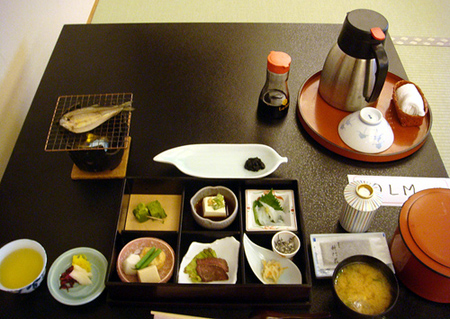
A Japanese breakfast
I’ve said already that I don’t have any credentials as a nutritionist or physician, and I’ll repeat that now just for emphasis. Who knows? Skipping breakfast may be the quickest route to some terrible disease. However, I’m betting the opposite, that listening to my body and not eating in the morning if I’m not hungry is going to be the most healthful approach I can take. For you, I wouldn’t even want to venture a guess, but here’s to whatever your healthiest breakfast turns out to be, whether that’s a traditional one, protein and vegetables, or nothing at all.
UPDATE: After a couple of months of experimentation, it seems that for me, at least, skipping breakfast results in plenty of energy and low hunger, but overall to conflict with even minor weight loss. It might be due to other factors, but when I tried to lose five pounds while skipping breakfast, I found the scale just didn’t budge. Please don’t take that as some kind of final determination in either direction, but it’s a bit of extra grist for the mill. These days I skip or eat breakfast as it suits me, and I don’t have the anxiety about skipping it that I used to when I do skip.
Top photo by lesleychoa
Japanese breakfast photo by herrolm
Like this:
Like Loading...




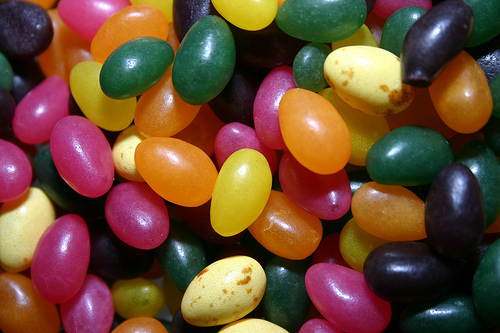
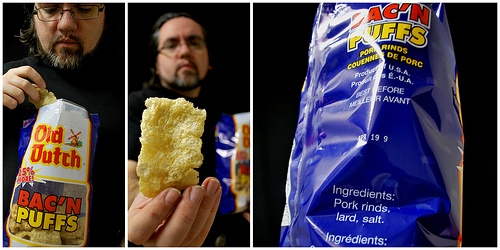

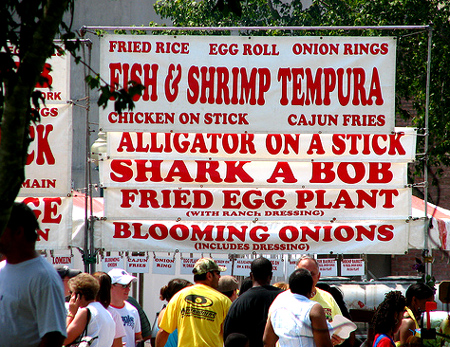

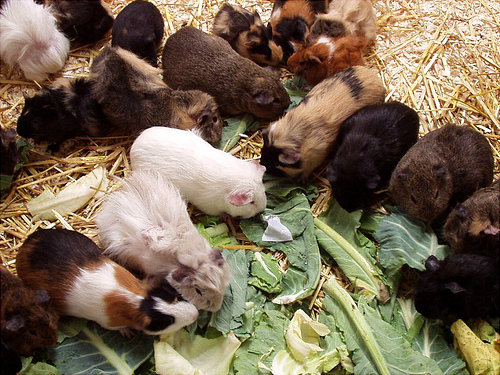
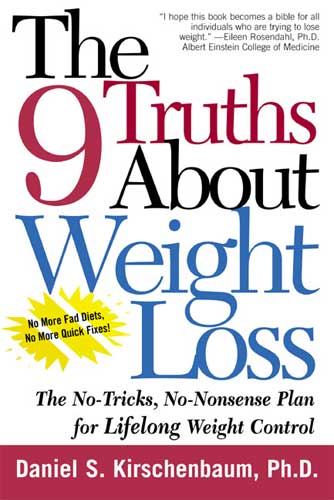 The 9 Truths About Weight Loss
The 9 Truths About Weight Loss